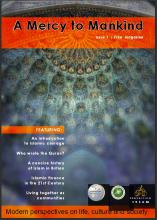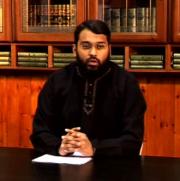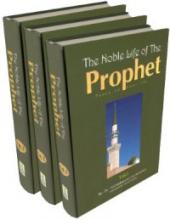The Prophet of Mercy Website
Muslim World League - Global Commission for Introducing the Messenger
Every individual in an Islamic society enjoys the rights and powers as the caliph of Allah, and in this respect all individuals are equal. “Caliphate” as a term has frequently been used to describe an Islamic political system based on monarchy, while the authentic notion truly refers to the authority of every single Muslim in his human capacity and his right to enjoy dignity and respect.
The notion of khilafah expresses how Islam empowers human beings and also how the government does not enjoy any special rights apart from those delegated to it by the political community.
The Hobbesian conception of the necessity of the State and its priority and seeing it as a condition for civility does not conform to the Islamic perspective. Yes, the formation of a State is a historical process, but the community comes first. No authority may deprive any citizen of his rights and powers.
The agency for running the affairs of the state will be formed by agreement with these individuals, and the authority of the state will only be an extension of the powers of the individuals delegated to it. Their opinion should be decisive in the formation of the government, which will be run with their advice and in accordance with their wishes.
Whoever gains their confidence will undertake the duties and obligations of the caliphate on their behalf (in the form of political representation); and when he/she loses this confidence he/she will have to step down from his/her specific position and be accountable for his/her actions and decisions. In this respect the political system of Islam is a form of democracy, even if it is not a secular one as democracies are usually defined in contemporary political literature.
What distinguishes Islamic democracy from Western democracy, therefore, is that the latter is based on the concept of popular sovereignty, while the former rests on the principle of popular khilafah, mixing religious devotion with a notion of democracy and citizenship.
In Western democracy, the people are sovereign; in Islam sovereignty is vested in Allah and the people are His caliphs or representatives. The laws given by Allah through His Prophet ( Shari ‘ah) are to be regarded as constitutional principles that should not be violated.







